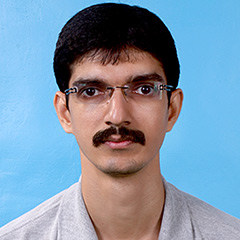What makes New Zealand a bogey team for India?

Mail This Article
New Zealand maintained their unbeaten run against India in the ICC Twenty20 World Cup with a comprehensive eight-wicket win in Dubai on Sunday. This was the third straight win for the Kiwis over Team India in the T20 showpiece. Kane Willamson's men had got the better of Virat Kohli and Co. in the semifinals of the 2019 ODI World Cup in Manchester and more recently in the final of the inaugural ICC World Test Championship at Southampton.
The last time India won against the Black Caps in ICC event was in the 2003 ODI World Cup. So what makes the Black Caps such a formidable opposition against the Indians? Well, the Kiwis invariably deliver at the crunch, while the Men in Blue rarely play to their potential in the knockout phase.
The Black Caps are a very organised unit led by the astute Willamson. He's calm and composed as opposed to Kohli who wears his heart on his sleeve. Willamson raises his game against the Indians while Kohli has found the going tough against the Kiwis. Williamson made a fine 67 in the 2019 World Cup semifinals as compared to Kohli who fell for one in the chase. Kohli could make only nine in Sunday's match while Williamson guided the Kiwis home with an unbeaten 33.
New Zealand's domination is not solely due to captaincy, they have got a balanced team which can perform in all conditions. In Trent Boult and Tim Southee, the Black Caps possess two of the finest swing bowlers in contemporary cricket. The left-armer Boult and the right-armer Southee complement each other and add variety to the attack. They have genuine quick bowlers in Adam Milne and Lockie Ferguson. Milne played Sunday's game after Ferguson was ruled out of the tournament with a calf tear.

The Kiwis have got two crafty spinners in leggie Ish Sodhi and left-armer Mitchell Santner. If it was Santner who took out Hardik Pandya and Rishabh Pant while attempting big hits in the 2019 World Cup semifinals, it was Sodhi's turn to lure Rohit Sharma and Kohli to play big shots at the Dubai International Stadium. The two had combined to shoot out India for 79 at Nagpur in the last edition of the T20 World Cup in 2016.
They have got a couple of explosive batsmen in the experienced Martin Guptill and makeshift opener Daryll Mitchell to go with the class of Williamson. Devon Conway, who kept the wickets after Tim Seifert was left out of the team to accommodate Milne, Jimmy Neesham and Glenn Phillips too add firepower to the Kiwi batting.

The Kiwis have always been a brilliant fielding side too. In short, they have all their bases covered as opposed to the Indians who are heavily reliant on their top three – K L Rahul, Rohit and Kohli – and pace spearhead Jasprit Bumrah. The Indians were worried about the lack of an explosive finisher and hence were forced to play a struggling Hardik Pandya in the eleven.
The fact that the Indians were worried about Boult was evident when they pushed regular opener Rohit to No. 3 spot and opened with rookie Ishan Kishan and Rahul. The Indian think tank had promoted Dinesh Karthik to No. 5 spot and played M S Dhoni only at No. 7 in the World Cup semifinals a couple of years back.
To make matters worse, the Indians lost their way once they slumped to 48/4 in the 11th over after being put in to bat. They allowed 54 dot balls and failed to hit a single boundary during overs seven to 15.
As Kohli said in his post-match presentation ceremony, the Indians 'were not brave enough' against a clinical New Zealand as they stare at an early exit.


